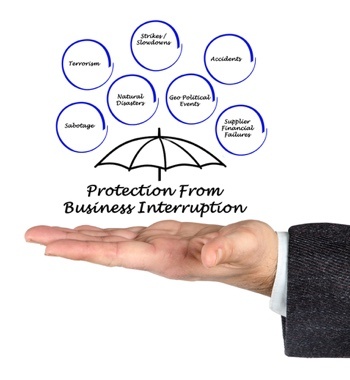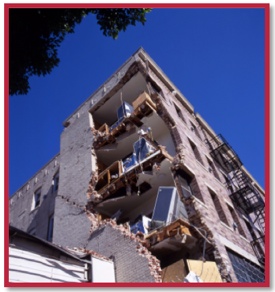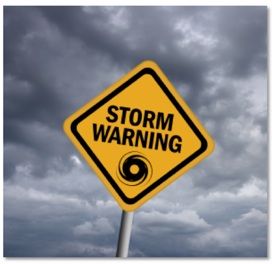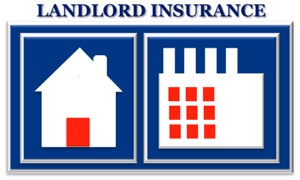Sobering Statistics on Business Interruption Insurance
 A recent national survey of small businesses yielded some sobering statistics. It found that 66 percent of these businesses do not have business interruption insurance—even though an estimated 25 percent of them will not be able to reopen following a major loss, such as a fire, a break-in, or a storm.
A recent national survey of small businesses yielded some sobering statistics. It found that 66 percent of these businesses do not have business interruption insurance—even though an estimated 25 percent of them will not be able to reopen following a major loss, such as a fire, a break-in, or a storm.
That same survey also revealed that three out of four small business owners do not have a disaster recovery plan, yet more than half of them admit that it would take at least three months for them to recover from a disaster.
Most small business owners are at risk of disaster, but they are least likely to have disaster recovery insurance or a plan in place to help them recover. About a third of the owners say it is not important for their business to have a disaster recovery plan, and they give interruption insurance a low priority.
Business interruption insurance can be as vital as fire insurance
It’s unlikely that anyone would ever consider opening a business without buying insurance to cover damages from fire or windstorms. But many small business owners don’t give serious consideration to how they would survive if a fire or other disaster damaged their business premises and rendered them temporarily unusable. A business that has to close down completely while their buildings are being restored may lose out to competitors. A quick resumption of business after a disaster is essential.
A few key points about business interruption insurance
- Business interruption coverage is not sold separately but is added to a property insurance policy or included in a package policy.
- It compensates you for lost income if your company has to vacate the premises due to disaster-related damage that is covered under your property insurance policy.
- Business interruption insurance covers the revenue you would have earned, based on your financial records, had the disaster not occurred.
- The policy also covers any operating expenses that continue even though your business activities have temporarily stopped.
- The price of the policy is related to the risk of a fire or other disaster damaging your premises.
A disaster could halt your business—even if your property remains undamaged
You have purchased a standard loss of business income policy, and you may think that you are totally protected from a disaster. Unfortunately, most policies do not cover utility interruptions—power, water, and communications--that originate away from your premises (for instance, the utility generating station may have been damaged or transmission lines could be down).
Losing these services for an extended period can be financially devastating. The first step is to evaluate the exposures facing your company. Will being out of power for hours or days adversely impact your operations and profits? If you come to the conclusion that it will, you should consider an endorsement that extends your coverage to include utility services interruptions.
Get back in business quickly with a Disaster Recovery Plan
In addition to the right insurance, a Disaster Recovery Plan (DRP) - a plan that describes how work can be resumed quickly and effectively after a disaster – is another element to ensure that a disaster doesn’t shut your business down. It consists of the precautions taken so that the effects of a disaster will be minimized and the organization will be able to either maintain or quickly resume critical functions. Typically, disaster recovery planning involves an analysis of business processes and continuity needs; it may also include a significant focus on disaster prevention.
Plans vary from one type of business to another, depending on the processes involved, and the level of security needed. Disaster recovery planning may be developed within an organization or purchased as a software application or a service. It is not unusual for an enterprise to spend 25% of its information technology budget on disaster recovery.
Contact Us for Help with Your Business Interruption Insurance Needs
A DRP, along with business interruption coverage, constitutes the business continuity planning that could rescue your business after a disaster. Depending on your particular business, properly planning for your business interruption insurance needs can be complex, but the well-trained staff at American Insuring Group can help. Click here to contact us or give us a call at (800) 947-1270 or (610) 775-3848.



 All businesses are at risk for some type of damage, liability or loss, and need to ensure that they have the right commercial insurance to protect themselves, their business, and their employees from those risks.
All businesses are at risk for some type of damage, liability or loss, and need to ensure that they have the right commercial insurance to protect themselves, their business, and their employees from those risks. 
 Smart business owners know that insurance is important to protect their business and assets. But, knowing which ones are right for your business can be a challenge. No one wants to be caught without the right
Smart business owners know that insurance is important to protect their business and assets. But, knowing which ones are right for your business can be a challenge. No one wants to be caught without the right  These five business insurance questions are a great starting point for any business owner, but you don’t need to go it alone. The advice of a trusted and experienced independent insurance agent from American Insuring Group can help ensure that you obtain the right insurance at the right price for your business.
These five business insurance questions are a great starting point for any business owner, but you don’t need to go it alone. The advice of a trusted and experienced independent insurance agent from American Insuring Group can help ensure that you obtain the right insurance at the right price for your business.  Be honest! Did you make any New Year’s resolutions this year? If you did, you weren’t alone. According to Statistic Brain, 45% of Americans “usually” make New Year’s resolutions, and according to Constant Contact®, 53% make business-related resolutions.
Be honest! Did you make any New Year’s resolutions this year? If you did, you weren’t alone. According to Statistic Brain, 45% of Americans “usually” make New Year’s resolutions, and according to Constant Contact®, 53% make business-related resolutions. 
 It's obvious that having the right commercial property insurance is key to protecting your business against unforeseen risks. But have you taken practical steps to reduce the potential impact of storms, floods, earthquakes, or other natural disasters beyond obtaining insurance?
It's obvious that having the right commercial property insurance is key to protecting your business against unforeseen risks. But have you taken practical steps to reduce the potential impact of storms, floods, earthquakes, or other natural disasters beyond obtaining insurance?
 Too Busy to Assess Your Risk?
Too Busy to Assess Your Risk? Hurricane Sandy was one of the most destructive and deadliest hurricanes in United States history. Twenty-four American states and seven other countries were affected. Coastal towns once pulsing with beachcombers by day and clubbers by night were submerged within hours. Businesses were out of operation for much longer than ever anticipated and the damages sustained were astronomical.
Hurricane Sandy was one of the most destructive and deadliest hurricanes in United States history. Twenty-four American states and seven other countries were affected. Coastal towns once pulsing with beachcombers by day and clubbers by night were submerged within hours. Businesses were out of operation for much longer than ever anticipated and the damages sustained were astronomical. As the owner of a commercial building, any permanent upgrades made to your property by a tenant become your property, not the tenant’s property. This may seem obvious, but consider the impact should damage be done to such improvements during the tenant’s leasing period. Whose insurance will pay for the repair or replacement cost? Will either insurance policy pay? Will both pay? Can you live with the uncertainty of not knowing?
As the owner of a commercial building, any permanent upgrades made to your property by a tenant become your property, not the tenant’s property. This may seem obvious, but consider the impact should damage be done to such improvements during the tenant’s leasing period. Whose insurance will pay for the repair or replacement cost? Will either insurance policy pay? Will both pay? Can you live with the uncertainty of not knowing?


 5 Easy Steps to Better Public Liability Insurance Protection & Greater Savings:
5 Easy Steps to Better Public Liability Insurance Protection & Greater Savings:




